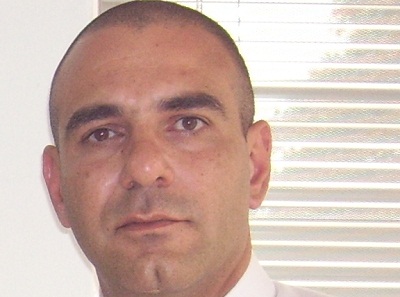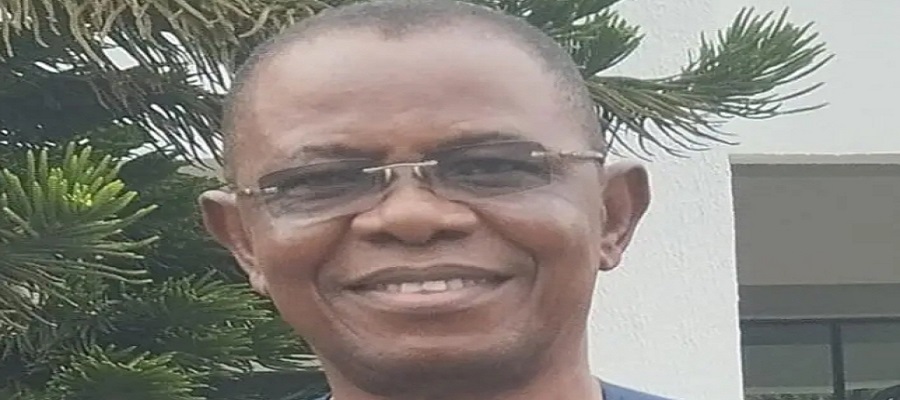News
e-Payment: N/A Plans New Law to Protect System

Suddenly conscious of the dangers of practicing electronic payment (e-payment) system without legislation, the National Assembly has begun moves to put in place relevant laws to protect the implementation of the system, Nigeria CommunicationsWeek can now reveal.
e-Payment is becoming a commonly used payment method in a wide variety of transactions and may be used in such transactions as banking, utility bill payment, tax payment, and consumer purchases as well as government transactions.
The e-payment concept was meant to check fraudulent practices among banks, government agencies and the business/real sector of the economy but the problems associated with the programme are now worrisome. For instance, there are no policies in place to guide transactions.
Nigeria CommunicationsWeek gathered that electronic payments are generally subject to the same contract laws as more traditional payment methods and that clearly leaves the system in hands of lethal gang of manipulators.
Also, at present Central Bank of Nigeria (CBN), switching companies and commercial banks are the institutions responsible for the needed perfection in the e-payment system while the Nigeria Communications Commission (NCC) is just a fringe player.
Luckily, the Anti money Laundering and Cyber Crime Coalition, formed by a body of members of the two chambers of the National Assembly has taken the first major step at ensuring that e-payment is available, accountable, accessible, scalable, and comprehensive.
Bassey Etim, member, House of Representatives and coordinator of the coalition, said the body came together with the objective of creating awareness about the dangers of Money Laundering, Cyber crimes and other ICT- related crimes as well as work towards formulating appropriate legal framework to effectively combat the menace.
It was formed in 2008 in consideration of the rising incidences of money laundering cases and the spate of cyber-related crimes and the attendant negative effects on the national economy.
Support has also come from the executive arm of government with, Mr. Ibrahim Dankwambo, accountant general of the federation urging the National Assembly to expedite action on the important piece of legislation.
Nigeria CommunicationsWeek gathered that e-payment legislation will address some of the common problems of the system including late return or no response in respect of applied funds, use of different IT platforms by different banks resulting in lack of interconnectivity, non uniformity of account numbers as different banks use different digits and none naira based transactions.
The law will also address other obstacles including lack of awareness of the benefits inherent in it, low appreciation of ICT, low level of education, uneven spread of available ICT infrastructure and epileptic power supply among others.
The place of the Nigerian Electronic Funds Transfer (NEFT) and Nigeria Inter Bank Settlement System (NIBSS) will also be clearly defined under the law to put paid to claims and counter charges between the two.
Elsewhere, Dr. Chris Uwaje, president, Institute of Software Practitioners of Nigeria (Ispon) proposed “ National Software Development ACT to establish the National Software Commission, National Software Product Procurement Accreditation Board (NSPPAB) and relevant agencies” to help Nigeria bridge the digital divide and become an economic giant.
He also called for “Electronic Commerce and Digital Transaction and Digital Signature Act to regulate electronic commerce and digital transactions. Digital Copyrights and Cyber-Regulation Act to protect digital copyrights and regulate cyber activities and Software Standards Act to regulate Software standards, performance and security.”
News
AfDB to Partner LAMATA to Expand Existing Rail System

The African Development Bank (AfDB), has disclosed plans to work with the Lagos Metropolitan Area Transport Authority (LAMATA), to boost the state’s transport system with the development of another rail line.

This was contained in a statement signed by, the Head, Corporate Communication, LAMATA, Mr. Kolawole Ojelabi in Lagos.
Ojelabi said that the AfDB Vice President, Private Sector Infrastructure and Industrialisation, Mr. Solomon Quaynor, gave the assurance during a visit to LAMATA.
He added that the bank was interested in partnering LAMATA to expand the capacity of the existing rail system.
“Quaynor was also in the company of the Non-Sovereign Operations and Private Sector Equity Specialist, Mr Mayowa Ayodele ahead of a visit of the technical team to assess the Purple line,” he said.
The Purple Line is a 60-kilometre railroad along the Redemption Camp in Ogun State, traversing Berger, Agege and Alimosho and terminate at Volkswagen to join the Blue Line.
“The visit follows a recent pitch for investment on 60-kilometre Lagos Rail Mass Transit (LRMT) Purple Line at the African Development Bank forum in Morocco, where the Lagos delegation was led by Governor Babajide Sanwo-Olu.
“This is to further discuss collaboration on the project and other lines outlined in the Lagos Strategic Transport Master Plan. The delegation toured the LRMT Blue Line and expressed satisfaction with the progress of the Blue Line rail system,” he said.
News
SERAP Drags FG, Govs to ECOWAS Court over ‘Misuse of Cybercrimes Act’

Socio-Economic Rights and Accountability Project (SERAP), has filed a lawsuit against the Nigerian government the 36 states over the Cybercrimes (Amendment) Act 2024.

SERAP is arguing that “the repressive use of the Cybercrimes (Amendment) Act 2024 by the government to criminalize legitimate expression violate the human rights of Nigerians, including activists, journalists, bloggers and social media users”.
In a statement on Sunday, Kolawole Oluwadare, deputy director, SERAP, explained that the suit was filed to stop the Tinubu administration and Nigeria’s 36 governors from using the Cybercrimes (Amendment) Act 2024 to criminalize legitimate expression and punish Nigerians, including social media users.
He said: “Rather than using the amended legislation to make cyberspace and its users safer, Nigerian authorities are routinely weaponizing it to curb Nigerians’ human rights and media freedom.
“The suit no: ECW/CCJ/APP/03/2025 was filed last week before the ECOWAS Court in Abuja.”
Recall that Economic Community of West African States (ECOWAS) Court had on March 25, 2022, declared Section 24 of Nigeria’s original Cybercrimes Act 2015 as “arbitrary, vague, and repressive.”
The court ordered Nigeria to repeal the provision, citing non-compliance with human rights obligations under the African Charter on Human and Peoples’ Rights and the International Covenant on Civil and Political Rights.
Although the Cybercrimes (Amendment) Act 2024 repealed Section 24, the Socio-Economic Rights and Accountability Project (SERAP) argues that the reworded provisions still infringe upon freedom of expression and information.
SERAP’s concerns center around the ambiguity of “causing a breakdown of law and order” in Section 24(1)(b), which they believe threatens peaceful and legitimate expression and leaves room for abuse.
SERAP highlighted several instances where the law was allegedly misused to target government critics, including activist Dele Farotimi, journalist Agba Jalingo, and social media user Chioma Okoli.
The organization emphasized that the amended legislation has a chilling effect on human rights and media freedom.
SERAP stressed that the amended Act contravenes international human rights law, which requires restrictions on freedom of expression to serve a legitimate purpose and be strictly proportionate.
The organization seeks a declaration that Section 24 of the Cybercrimes (Amendment) Act 2024 is unlawful and an order directing the government to repeal or amend the legislation in compliance with international standards.
However, a hearing date has not been set for the suit.
News
GOCOP Applauds Edo Gov for Appointing Edomaruse, SA, Int’l Development

Guild of Corporate Online Publishers (GOCOP) has applauded Mr. Monday Okpebholo, Edo State governor, for the appointment of Mr. Collins Edomaruse as his Special Adviser, International Development Partners (IDP).

Ms Maureen Chigbo, president of GOCOP and publisher of RealNews Online, described Edomaruse’s appointment as a welcomed development.
Chigbo in a press statement by Ogbuefi Remmy Nweke, GOCOP Publicity Secretary, also congratulated Edomaruse for this appointment assuring of support from over 110 members of GOCOP in carrying out his duties.
Until his appointment, Edomaruse who is a founding member of GOCOP and the Secretary General of the body of reputed online publishers is also a member of the Nigerian Guild of Editors (NGE), among others.
Edomaruse doubles as the Publisher/Editor-in-Chief of METROWATCH, and has held several senior editorial management positions in THISDAY, including Group News Editor, Group Politics Editor, Deputy Editor, Daily, Saturday and Sunday titles respectively, as well as the Editor, Nation’s Capital/Abuja Bureau.
Also known as ‘General’ because of his mastery of the Defence Beat, his records in THISDAY have remained unbeaten, where he ranked the best among the editors.

 Telecom1 day ago
Telecom1 day agoSuspected Lakurawa Terrorists Kill 3 Telcoms Workers in Kebbi

 General News1 day ago
General News1 day agoLagos State Sets Strict Deadline for 2024 Tax Returns Filing

 E-Financial1 day ago
E-Financial1 day agoBudgIT Queries Irregularities in FG’s Proposed 2025 Budget

 News1 day ago
News1 day agoSERAP Drags FG, Govs to ECOWAS Court over ‘Misuse of Cybercrimes Act’

 E-Financial1 day ago
E-Financial1 day agoNAICOM Seeks Police’s Support to Enforce Third-party Motor Insurance

 E-Financial1 day ago
E-Financial1 day agoGAIM 6: Fidelity Bank Rewards 10 Customers with N10m

 E-Business1 day ago
E-Business1 day agoLagos, NIPOST Partner to Transform e-Commerce Delivery

 News1 day ago
News1 day agoGOCOP Applauds Edo Gov for Appointing Edomaruse, SA, Int’l Development
















